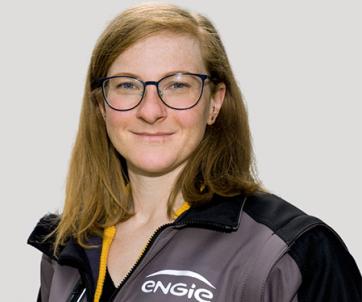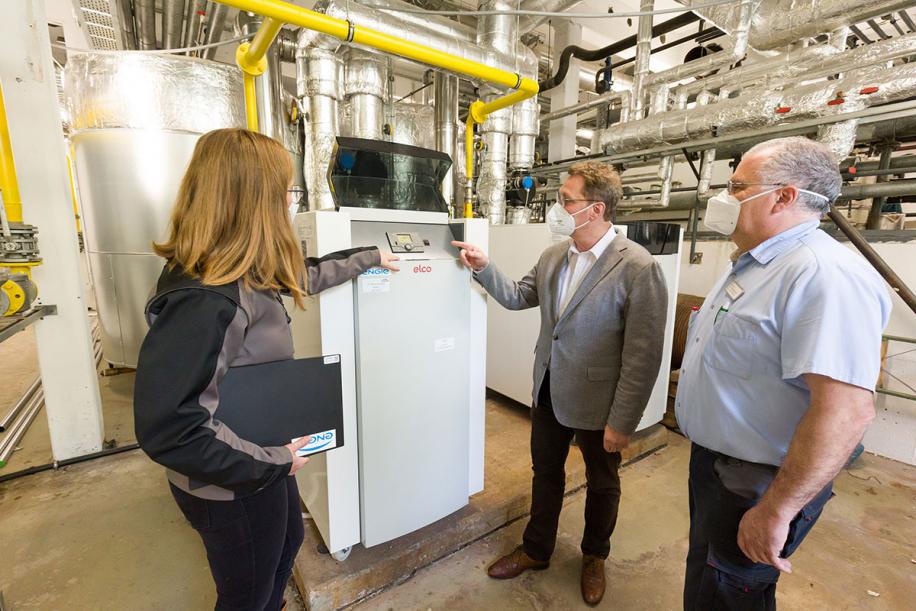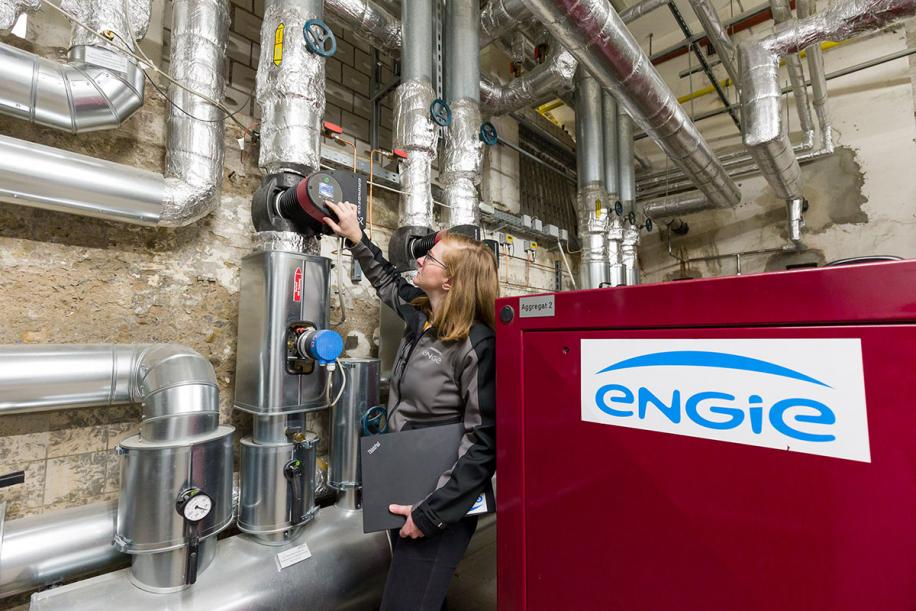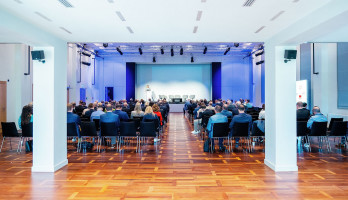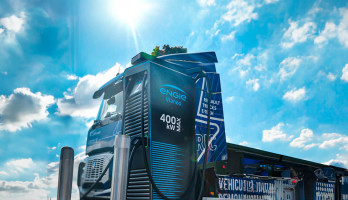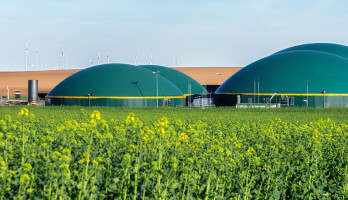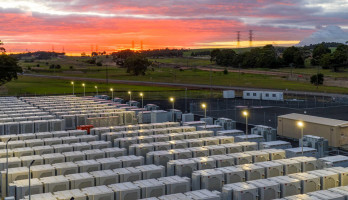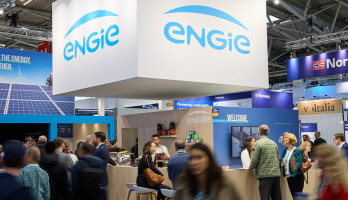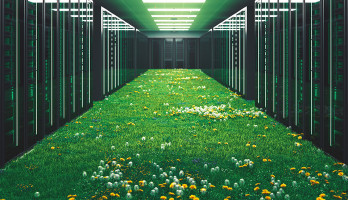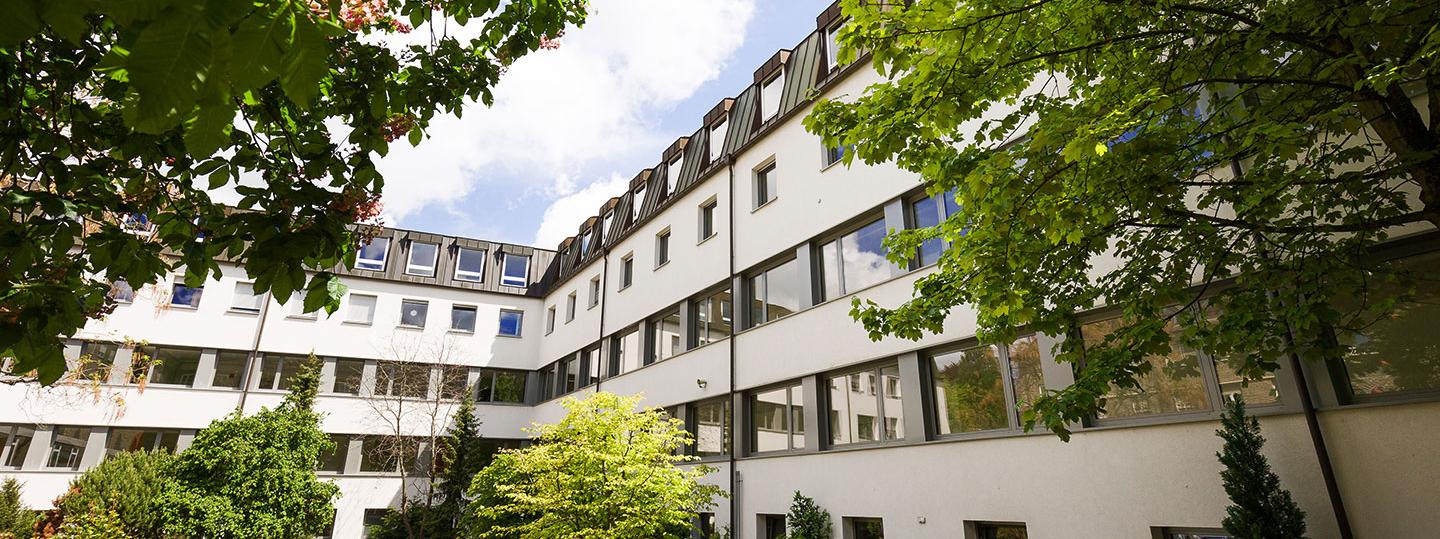
On-site heating transition: Climate-friendly local heating concept in Bruchsal
Local heating networks offer optimal opportunities to make the best possible use of potential savings in heat supply. In conjunction with climate-friendly generation systems, they are important components of an ecologically responsible and future-oriented heat concept.
Green heat is not only environmentally friendly, but also economically efficient. Many facilities and companies have therefore already modernized their gas and oil based heating systems. Two Christian sponsors with neighboring properties in Bruchsal also wanted to take this development step: As a professional technology partner, ENGIE implemented a dedicated modernization project for the Evangelical Center for the Elderly run by Diakonieverein Bruchsal e.V. and for St. Paulusheim, a private high school run by the Schulstiftung der Erzdiözese Freiburg and Klosterkonvent der Pallottiner. As part of the innovative project, three heating centers were equipped with new heat generators and connected via a local heating pipeline that was partially buried in the ground.
In the Bruchsal local heating network, two combined heat and power plants (CHP) now secure the supply primarily from biomass (wood pellets) and through cogeneration. Since the start of the supply phase, it turns out that the heat demand has already been reduced by 925 megawatt hours per year, or 22 percent, thanks to the new installation that was carried out. CO2 emissions were also reduced by more than 56 percent.
Christian organizations focus on sustainable and climate-friendly heat supply
With the new supply system, the Christian organizations are jointly taking an important step toward a climate-neutral future. From the beginning of the planning phase, ENGIE undertook the conversion measures under four guiding principle that are important to the Christian organizations: ecological, economic, ecumenical and local. Combining social and charitable aims with climate protection - this guiding principle is also emphasized by Markus Zepp, principal of St. Paulusheim High School, in connection with the future-oriented energy-saving project: "With this exemplary joint project, we are making a sustainable contribution to the preservation of creation. We are proud if this enables us to give our students a vital impetus on their path through life."
"Four principles" for climate protection and economic efficiency
The implementation of the supply project was a particular challenge for the ENGIE team: On the one hand, the conversion and installation of three heating centers with two new CHP units, a new pellet boiler and two new gas condensing boilers as heat generators had to be carried out during ongoing operations. On the other hand, the earthworks for laying the local heating system took place in a steep slope terrain.
Nevertheless, all of the contractor's objectives were achieved in the best possible way and a climate-friendly, compelling modernization project was implemented. Using modern heat technology, ENGIE was able to efficiently implement the relevant requirements of the Diakonieverein and the St. Paulusheim. The newly installed heating system meets the ecological and economic requirements and makes efficient use of local site advantages.
Ecologically valuable – an important step towards climate neutrality
As a result of the heating transition, future-proof technologies must be used that meet the challenges of climate change and that have been shown to significantly reduce CO2 emissions. Instead of heating oil, the facilities are now heated by 50 percent renewable biomass. The newly installed 400-kilowatt high-performance pellet boiler operates in a CO2-neutral manner, as only the CO2 that was previously bound in the wood is released. Another 35 percent of the heat generation comes from combined heat and power and only 15 percent from gas, to ensure the supply at peak load.
ENGIE installed two CHP modules with a total heating output of 2.3 megawatts as a power generation plant. In addition, the team updated the existing heating distributors in the control centers with high-efficiency pumps and innovative control technology. In this way, the modern and environmentally friendly plant with its ecologically valuable supply concept results in a remarkable CO2 saving of 67 percent.
Economically efficient – energy supply contracting and sustainable raw materials
The plant conversion and the partial underground installation of the local heating network are being refinanced using energy supply contracting. Due to a term of 20 years and thanks to attractive purchase prices for the wood pellets, customers do not have to bear any additional costs.
The implemented monitoring systems also ensure energy-efficient operation without energy losses. Cooperation with local companies will strengthen the region. Since the pellets are supplied from the neighboring town, there are short transport routes, which also reduce the costs of this ecologically and economically sensible project and have a positive impact on the environmental balance.
Climate-friendly heat supply with measurable performance
The trend-setting modernization project shows: Meeting the challenges of the energy and heating transition can only succeed across generations and by working together. The Diakonieverein Bruchsal e.V., the school foundation of the Archdiocese of Freiburg and the Pallottines will be supplied with heat in the future.
With the complete new installation of the heat generation system and a newly installed local heating network for a sustainable supply, it is now possible to refer to a climate balance that achieves the aforementioned objective in an optimal manner. Self-sufficiency of the private high school and the Pallottine Order is 96 percent and the heat demand has decreased significantly.
A look at the greatly reduced CO2 emissions shows the elementary contribution that sustainable raw materials play in achieving the energy and heating transition by 2045 and how efficiently they are already being used. A real success. But the pellet solution is not only ecological; the raw material switch to biomass was also financially beneficial. The price level of pellets is far below that of heating oil, while maintenance costs for the system remain the same.
Anne Geier, Project Manager Energy Solutions at ENGIE Deutschland, is also satisfied:
"In this way, we are achieving the strategic corporate objective of ENGIE in an exemplary manner, to accompany our customers on their way to climate neutrality with environmentally friendly solutions."
Our Expert
